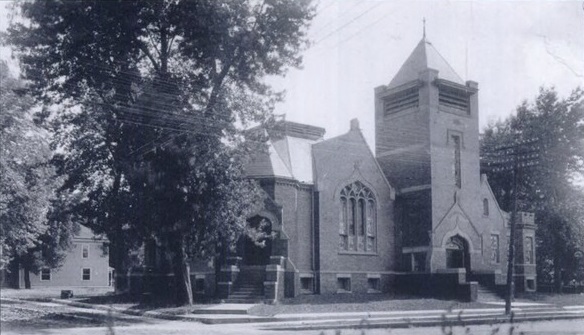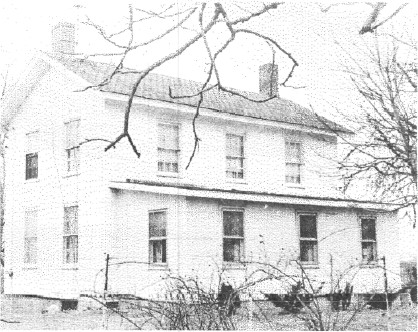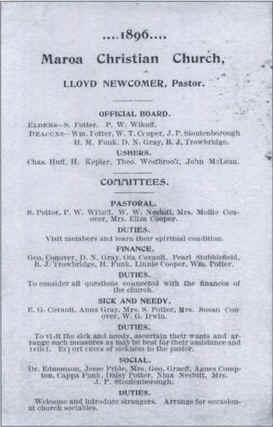



430 E Main Street P. O. Box 440 Maroa, IL 61756 (217) 794-3492
History of Maroa Christian Church
Maroa Christian Church began in 1862 as a “daughter” of Texas Christian Church, about eight miles northwest of Maroa. The Texas church had itself formed in 1850, was reorganized in 1860, and had grown to about sixty members. About two dozen of these members lived in Maroa, and wanted to see a church in their own community. After a week-long revival by A. N. Page of De Witt County, a meeting was called on Sunday, May 4, 1862, at 9:00 a.m. in order to organize a new church. The group met at the home of Dr. J. W. Thayer (below, with wife Catherine, and their home).

Hiram Dotson, elder of Texas Christian Church, chaired the meeting. Joseph Clough and Madison “Melle” Thomas were selected as elders for the new congregation, with Oliver Harlan and Samuel Potter as deacons. Dr. Thayer was chosen to be the clerk. All told, twenty-four charter members were added that day, twenty-one of whom came from the ranks of Texas Christian Church. The charter members were:
Mr. & Mrs. Joseph Clough John Clough
Mr. & Mrs. Samuel Potter Oliver J. Harlan
Mr. & Mrs. Andrew J. Tandy A. Jackson Metlin
Mr. & Mrs. James A. C. Rose Aaron D. Wysong
Mr. & Mrs. Madison Thomas Barton W. Campbell
Mr. & Mrs. Thomas Hedger Mrs. Amy J. Hedger
Dr. & Mrs. John W. Thayer Miss Harriet Hedger
Miss Mary J. Williams Miss Ann Williams
Mrs. Elizabeth Armstrong
At 11:00 the same morning, the new church met at the school house in Maroa, where Brother Page preached once again. After “breaking bread” (communion) they gave each other the right hand of fellowship, a symbol of welcoming a new member to a church family. At 6:00 that evening the elders and deacons were officially installed.
What is particularly noteworthy about this church plant is the attitude of cooperation and fellowship between two. This was not the result of an ugly church split, as is too often the case, but rather a joint effort with plenty of support from the “mother” to the “daughter” church (even though the transfers to Maroa seriously depleted the ranks of Texas). In the years to come both congregations would see significant growth—a sign of spiritual health—as well as a cordial relationship between the congregations, such as evidenced by a combined church picnic (called a “grand basket dinner”) between the Union Church (the “mother” of Texas Christian Church), Texas, and the Maroa Church (the “daughter” of Texas) in 1881.

"bulletin" from 1896